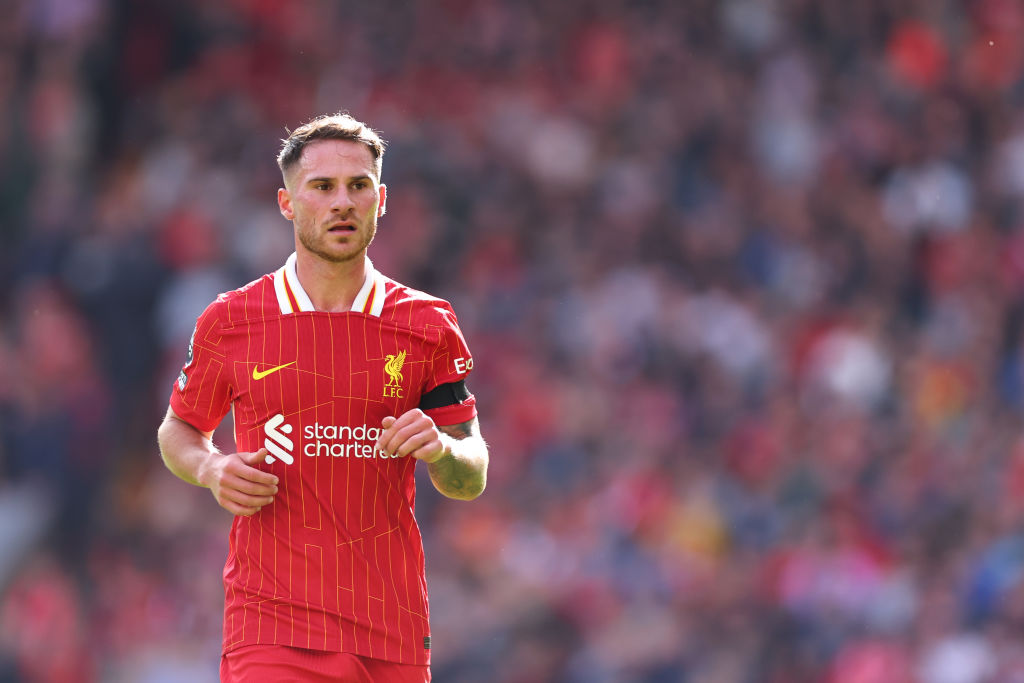How many of English football's first 20 foreign managers do you remember?
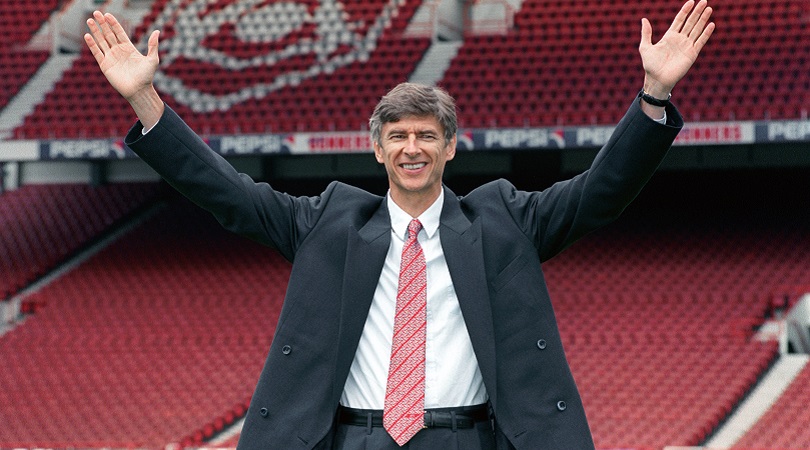
First foreign managers
As things stand, there looks set to be just five British managers in charge of Premier League clubs at the start of next season: Mark Hughes, Eddie Howe, Sean Dyche, Roy Hodgson and Neil Warnock.
Foreign coaches may be commonplace these days, but they were once a novelty on these shores. In this slideshow, we remember the first 20 overseas-born bosses (defined as outside the British Isles) to grace the English top flight or manage the England national team...
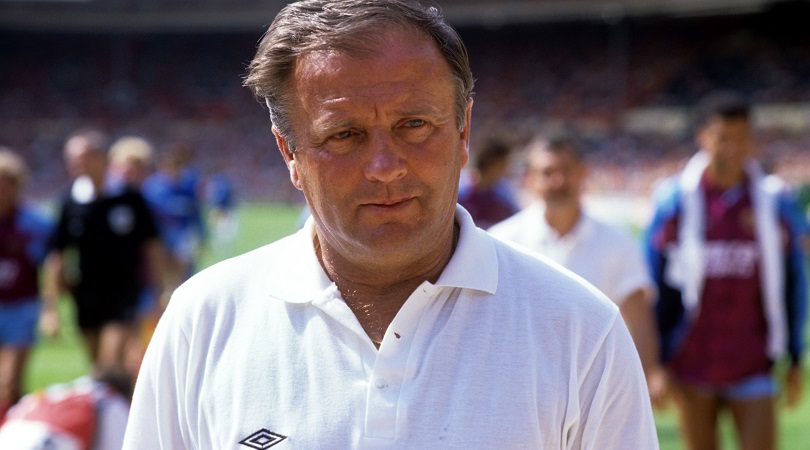
1. Jozef Venglos (Aston Villa)
July 22, 1990 to May 28, 1991
Few members of the assembled press pack recognised Venglos, who had just led the Czech Republic to the World Cup quarter-finals, when he was unveiled as the first foreign manager of an English top-flight club in summer 1990.
His training methods nonplussed players who could barely understand the need for a post-match warm-down, and Villa – who'd just finished second under Taylor’s muscularly direct style – struggled to a 17th-place finish. Venglos was replaced by Ron Atkinson, and English football continued to distrust foreigners – even though, as Dwight Yorke acknowledged, “Things he did at Villa, other clubs were doing seven or eight years later.”
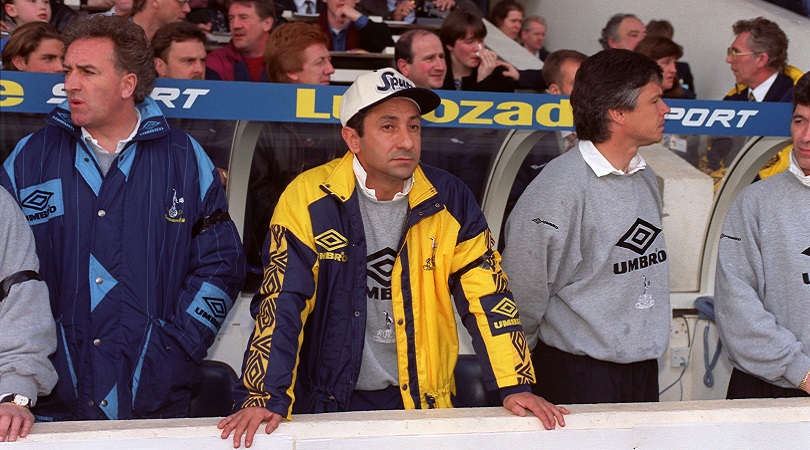
2. Ossie Ardiles (Tottenham)
June 19, 1993 to November 1, 1994
Ardiles was used to being a trailblazer: there had been very few overseas players before he joined Spurs in 1978. Unlike many who came in his wake, the Argentine was a success, spending a decade at White Hart Lane before a promising start to his managerial career in the English lower leagues tempted Tottenham into hiring him back as gaffer.
His ‘Famous Five’ forward line of Teddy Sheringham, Nicky Barmby, Darren Anderton, Jurgen Klinsmann and Ilie Dumitrescu didn’t work. It wasn’t dull – results included a 4-3 win at Sheffield Wednesday and an 8-6 aggregate cup win over second-tier Watford, but also a 4-1 home loss to Forest, a 5-2 defeat by Manchester City and, the final straw, a 3-0 cup humiliation at Notts County.
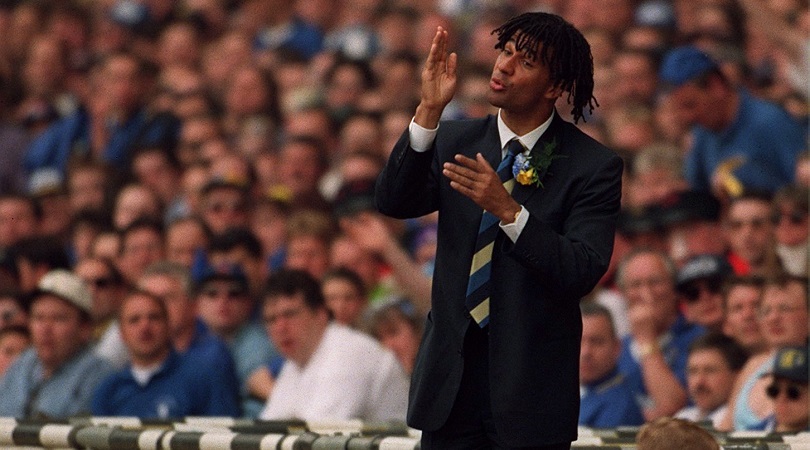
3. Ruud Gullit (Chelsea)
May 10, 1996 to December 2, 1998
By moving from Serie A in summer 1995, Gullit signalled that the Premier League could attract genuinely world-class overseas players; by becoming manager and winning trophies, he smashed open the doors of English management’s cosily colonial old boys club.
The Dutchman first replaced Glenn Hoddle as Chelsea's brains on the field, then as player-manager when England appointed Hoddle. The Blues had only finished in the top six once in a decade, but Gullit led them there at his first attempt – the first of 19 consecutive top-six finishes – and also won the 1997 FA Cup, the first major English trophy won by an overseas manager.
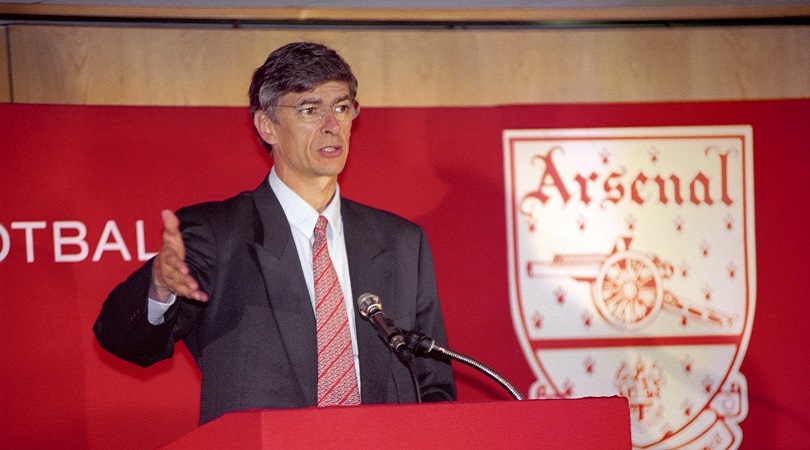
4. Arsene Wenger (Arsenal)
October 10, 1996 to May 14, 2018
The famous newspaper headline “Arsene Who?” was a lot less Anglo-Saxon than the phrasing when David Dein told the Gunners players who their new boss would be. And the (initially) bespectacled Frenchman’s overhaul of entrenched diet and training could easily have caused much more internal strife.
But astute signings (Wenger was the first Arsenal manager given free rein in the market) and acute man-management helped get the doubters on board – as did the results. Having finished third in 1997, Arsenal won the Double in 1998 and 2002 before completing a title-winning season undefeated in 2004. The trophies dried up in the second half of his tenure, but he retains the respect of the majority of Gunners supporters.
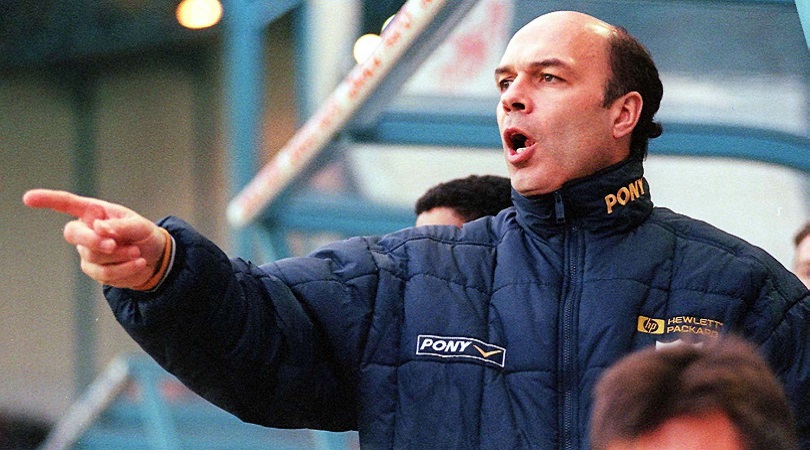
5. Christian Gross (Tottenham)
November 25, 1997 to September 5, 1998
Former Grasshoppers gaffer Gross’s fumbling nine-month reign ticked all the wrong boxes. The misjudged photo opportunity with the Travelcard, supposed to show empathy with the fans, made him look like a lost tourist. He couldn’t win over the players who hated his iron-rod training regime, the journalists who derided his communication skills, or the fans who saw poor results with no discernible plan to improve them.
It all led to Spurs’ publicity-magnet chairman Alan Sugar getting the kind of attention he doesn’t like, and the axe fell three games into the season. Gross returned to Switzerland and success; instead of hiring an imitation Arsenal manager, Sugar hired George Graham.
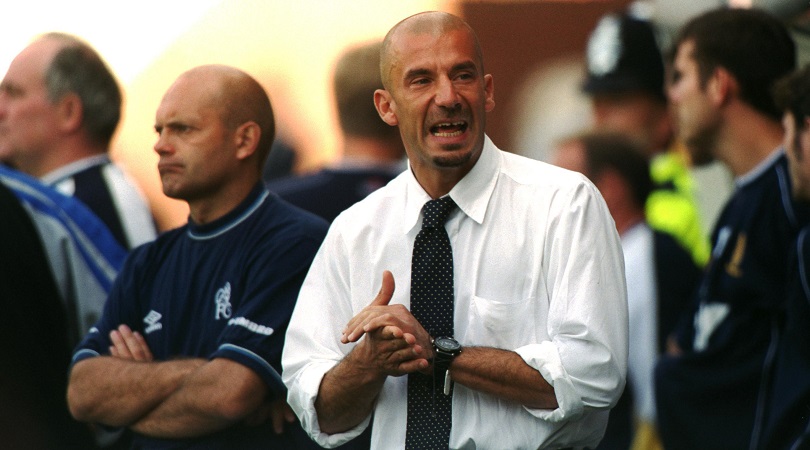
6. Gianluca Vialli (Chelsea)
February 12, 1998 to September 12, 2000
Vialli’s appointment by Chelsea followed the pattern of his predecessor’s: just as Glenn Hoddle signed Ruud Gullit on a free transfer and was then replaced by him as a first-time player-manager, so Gullit watched his own freebie take over as a newbie gaffer.
Having taken over with Chelsea in the semis of the League Cup and Cup Winners’ Cup, Vialli won both competitions, becoming at a shade under 34 the youngest gaffer to win a UEFA trophy (Andre Villas-Boas later trumped him). In 1999 the Blues finished just four points off champions Manchester United and in 2000 they reached the Champions League quarter-finals, losing to Barcelona.
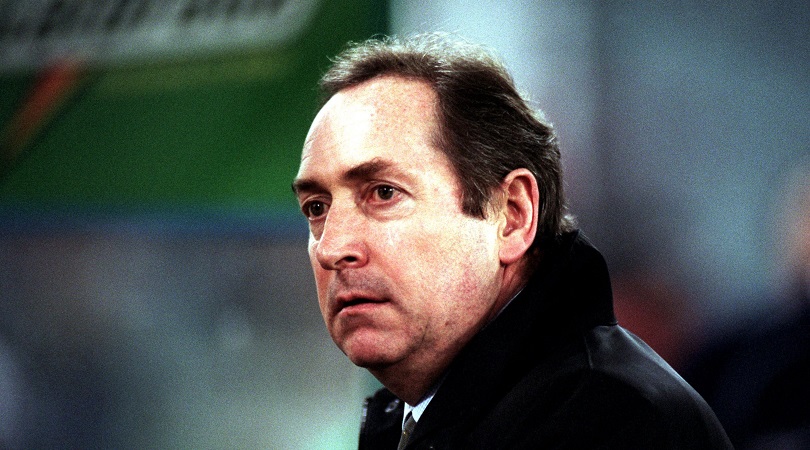
7. Gerard Houllier (Liverpool)
July 1, 1998 to May 24, 2004
Houllier’s initial joint arrangement with club legend Roy Evans reflected Liverpool’s incompatible desires for continuity and revolution. Evans was soon gone and the former France manager set to work, overhauling the underachieving squad and underwhelming training facilities. It took a while but Liverpool enjoyed a cup treble in 2001, lifting the UEFA Cup, FA Cup and League Cup.
That October, Houllier was rushed from Anfield to hospital for an emergency heart operation. Although he returned five months later and helped guide Liverpool to a second-place finish, the story thereafter was marred by poor finishes and failed signings, and in 2004 he was replaced by Rafa Benitez.
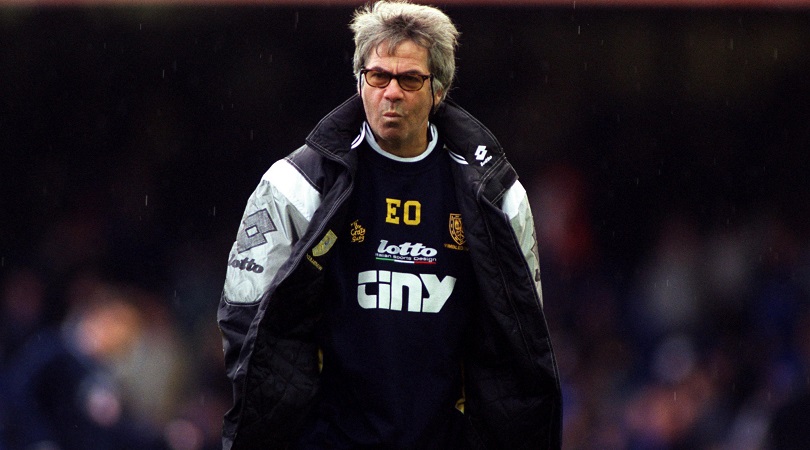
8. Egil Olsen (Wimbledon)
June 9, 1999 to May 1, 2000
You had to go some at Wimbledon to be seen as odd, but Olsen managed to freak out the Crazy Gang. The appointment made sense: he’d overachieved with Norway, reaching two successive World Cups and second in the FIFA rankings. A sports-science buff, he was supposed to maximise the Dons’ chances of getting back up to the business end of the top flight.
The players didn’t understand his jargon, however, and he didn’t understand their booze-and-jokes culture. The Norwegian refused to scout opponents, given that he wouldn’t change anyway. And he wanted to implement zonal marking, but his defenders simply couldn’t cope. Olsen was sacked following eight straight defeats, with the Londoners’ relegation confirmed soon after.
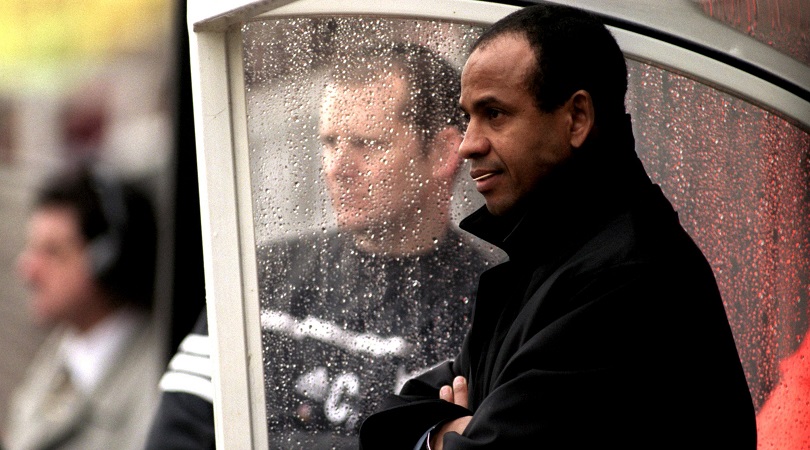
9. Jean Tigana (Fulham)
July 1, 2000 to April 17, 2003
Tigana joined a club in a rush, Mohamed Al-Fayed bankrolling his pledge to go from fourth tier to top division with Fulham in five years. The Frenchman completed that job in style by May 2001, taking them into the top tier with 101 points.
The Cottagers settled nicely and ended the campaign in 13th, while also reaching the FA Cup semis. Al-Fayed’s cash helped lure star players like Edwin van der Sar, although money wasn’t everything: record signing Steve Marlet looked hopelessly overpriced at £11.5m, and it was his price tag that brought an end to Tigana’s reign after Al-Fayed initially refused to pay the final instalment of his fee.
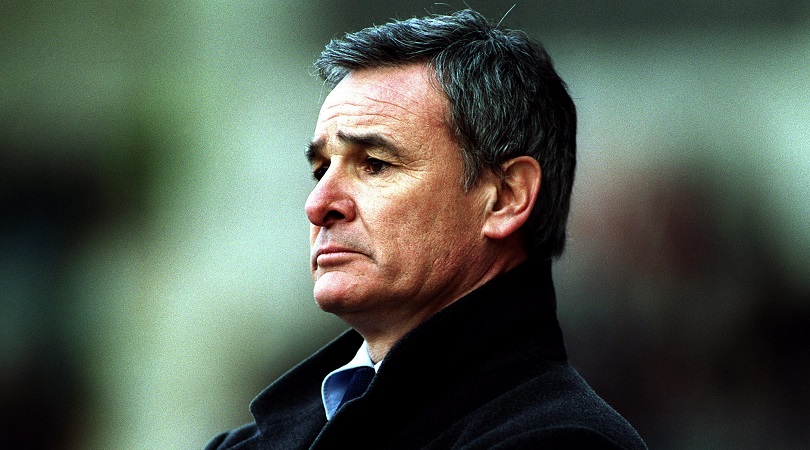
10. Claudio Ranieri (Chelsea)
September 18, 2000 to May 31, 2004
This appointment in September 2000 didn’t go down well: fans chanted the name of predecessor Gianluca Vialli and Ranieri’s halting English led to the nickname ‘Clownio’. His Chelsea rotations led to another disparaging tag of Tinkerman, but he did sign Frank Lampard and nurture John Terry.
Ranieri also got Chelsea into the Champions League, encouraging the 2003 Roman Abramovich takeover which numbered his days. Finishing second to Arsenal’s Invincibles wasn’t good enough, and despite a popular campaign to save him he was sacked: nice guys don’t come first. Isn’t that right, Leicester?
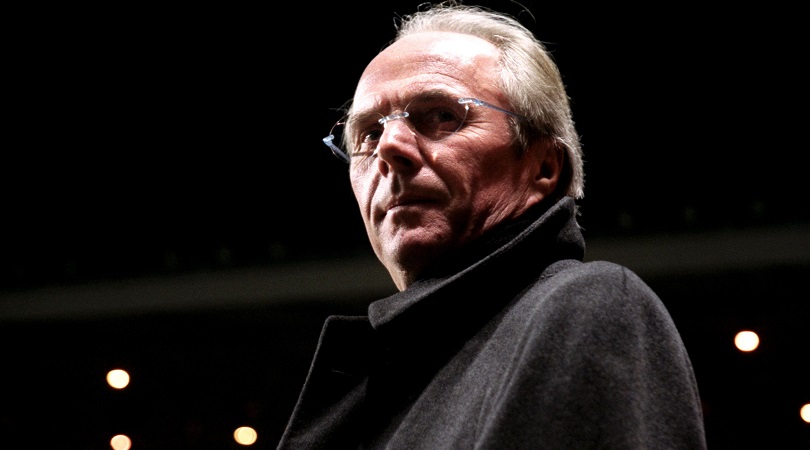
11. Sven-Goran Eriksson (England)
January 9, 2001 to July 2, 2006
It’s a great irony that while appointing a foreign manager was supposed to take England to a glorious millennial future, the chosen appointment merely enshrined an outdated tactical system as doggedly as anyone born on that Atlantic archipelago.
Despite the xenophobic wails that greeted the Swede’s appointment, Eriksson was a winner who had collected trophies in Sweden, Portugal and Italy. He tidied up Kevin Keegan’s mess, gave England’s stunned fans a 5-1 win in Munich, then reached three successive tournament quarter-finals. That which now seems luxury was then deemed unsatisfactory, and the suspicion remains that England’s best crop of players in half a century should have done better.
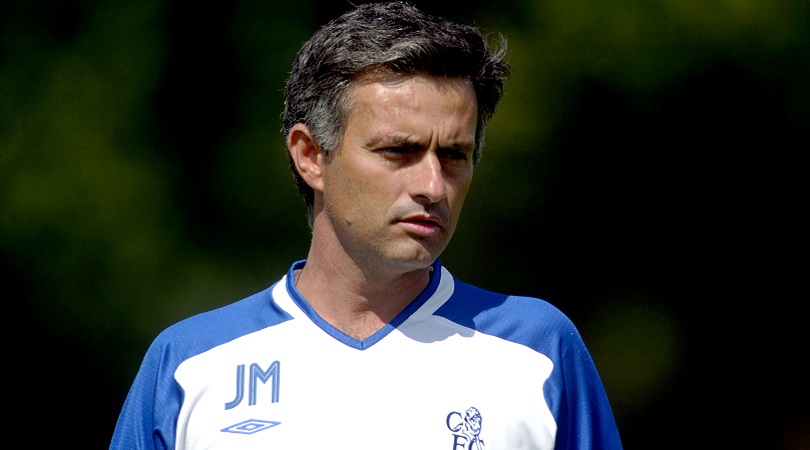
12. Jose Mourinho (Chelsea)
June 2, 2004 to September 20, 2007
In summer 2004, a trio of major English clubs appointed a trio of major continental managers, and it was a surprise to nobody that Chelsea got their man in the seat first.
Mourinho immediately delighted and divided: football journalists adored his carefully crafted soundbites; fashion mags pontificated over his stylish overcoat; Chelsea fans loved his side’s attacking brio (despite a later reputation for pragmatic football, his side scored 144 league goals in his first two title-winning seasons) and subsequent trophy-collecting. Three-year stints would later become familiar, but it was a genuine shock when he departed in September 2007.
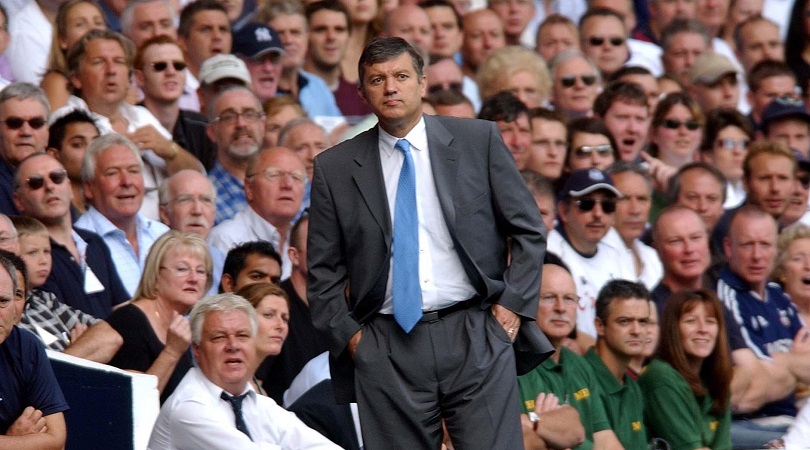
13. Jacques Santini (Tottenham)
June 3, 2004 to November 5, 2004
Santini’s tenure at White Hart Lane started well enough, with six league games undefeated and only two goals conceded, but the tide turned with four losses in the next five. An increasingly withdrawn Santini appeared to resent Arnesen’s pre-eminence and closeness to his assistant Martin Jol, while the players perhaps understandably didn’t know who was in charge.
After a home loss to Bolton, a distraught Santini avoided the press to study the tapes – but on the day club legend Bill Nicholson died, that looked like a snub. Within a fortnight Santini was gone, replaced by Jol – and within a year Arnesen had been lured away by Chelsea.
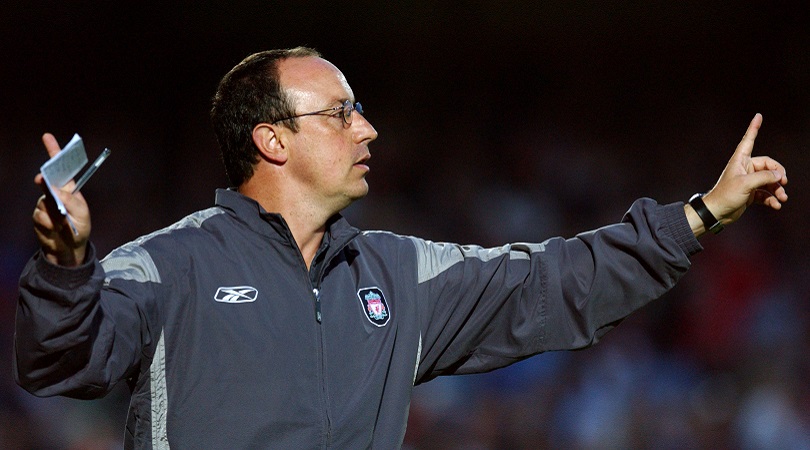
14. Rafael Benitez (Liverpool)
June 16, 2004 to June 3, 2010
Liverpool is a singular city, initially wary of outsiders but quick to welcome those who adapt to its ways; of its 15 post-war managers, some of them iconic, only two (Joe Fagan and Roy Evans) were Liverpudlian by birth. But Scouseness is an adaptable, adoptable concept, and Benitez was quickly clasped to the city’s bosom.
It helped that the Spaniard understood the culture of the city and club. It helped that he was anti-authority, never shy to take on figures like Alex Ferguson or unpopular owners Gillett and Hicks. And obviously it helped enormously that in his first season he won Liverpool’s first European Cup in 21 years, before taking them close to the title in 2008-09.
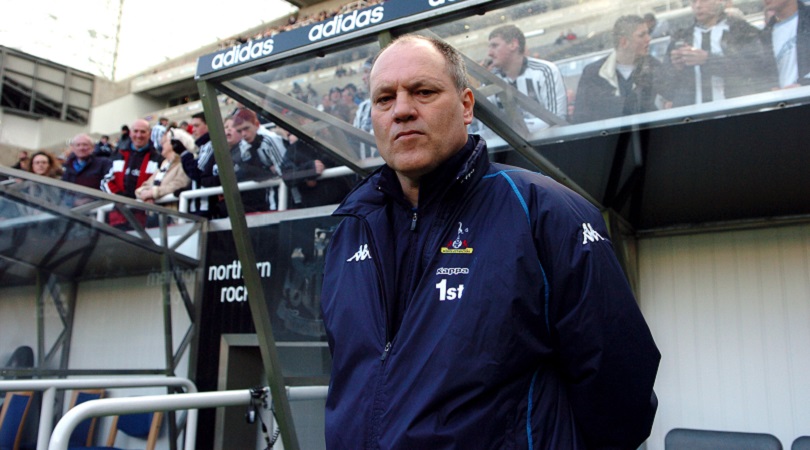
15. Martin Jol (Tottenham)
November 5, 2004 to October 25, 2007
A Dutch Anglophile, Jol had played in England back before it was trendy and lucrative, turning out for West Brom and Coventry in the mid-to-late 1980s when English football was arguably at its lowest ebb.
He started so well as Spurs boss that he was tipped to return home for the Ajax job, but stuck around and in his first full season led the north Londoners agonisingly close to breaking into the top four; only a dodgy lasagne and subsequent loss at (a deliriously happy) West Ham stopped them displacing Arsenal from the Champions League places.
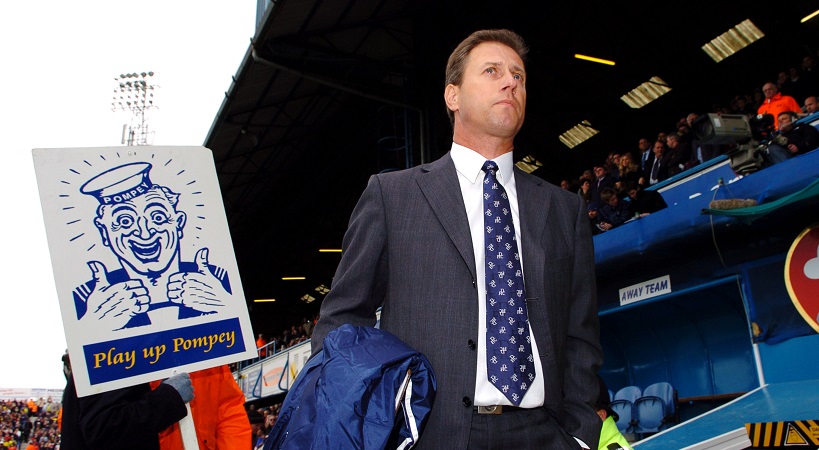
16. Alain Perrin (Portsmouth)
April 7, 2004 to November 24, 2005
A derby win will buy you a lot of favours. A derby win in April against relegation rivals managed by your ex-gaffer who left you in high dudgeon, effectively guaranteeing your safety while sending those rivals to the bottom of the league – well, that more or less makes you a legend, no matter how the story ends up.
Perrin’s Portsmouth career was about more than a 4-1 defeat of Harry Redknapp’s Southampton, but not much more. Of 20 Premiership games, he won just four (Charlton, Everton and Sunderland his other victims), and left the club one place above the drop zone.
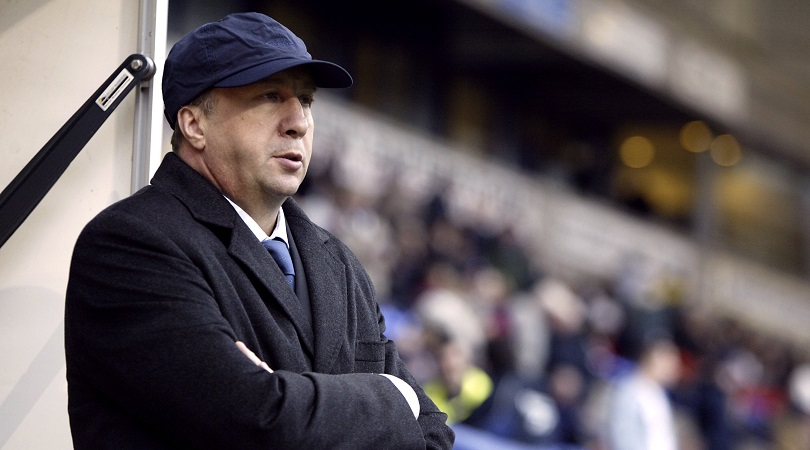
17. Velimir Zajec (Portsmouth)
November 24, 2004 to April 7, 2005
Harry Redknapp doesn’t always like the director of football idea. He was made Portsmouth’s in summer 2001, and when the club’s form dipped a few months later manager Graham Rix was sacked and Redknapp given the gaffer’s office.
So he wasn’t too happy in November 2004 when Pompey owner Milan Mandaric appointed Velimir Zajec as “executive director”, apparently in charge of developing an academy. Yugoslavia’s captain at Spain 82 and Euro 84, Zajec was much more comfortable flitting between roles: at both the clubs he played for, Dinamo Zagreb and Panathinaikos, he had later had spells as head coach and DoF – a trend he continued at Pompey.
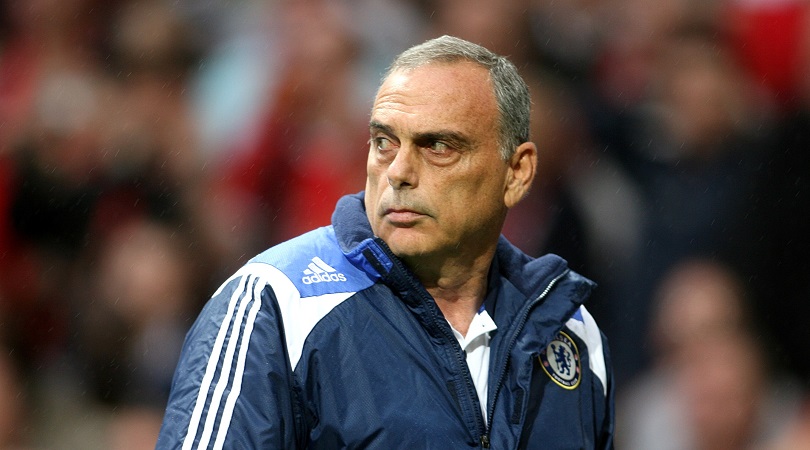
18. Avram Grant (Chelsea)
September 29, 2007 to May 24, 2008
Born Avraham Granat in Israel of Polish heritage, he started coaching at age 18 and managed his country by age 47. In summer 2006 he joined Portsmouth as technical director; a year later his friend Roman Abramovich made him Chelsea’s director of football, and 10 weeks later he replaced Jose Mourinho despite lacking the requisite coaching badges.
Unlike his predecessor, he led the Blues to the Champions League final, but lost on penalties to Manchester United and was sacked. He subsequently managed Portsmouth and West Ham in the Premier League.
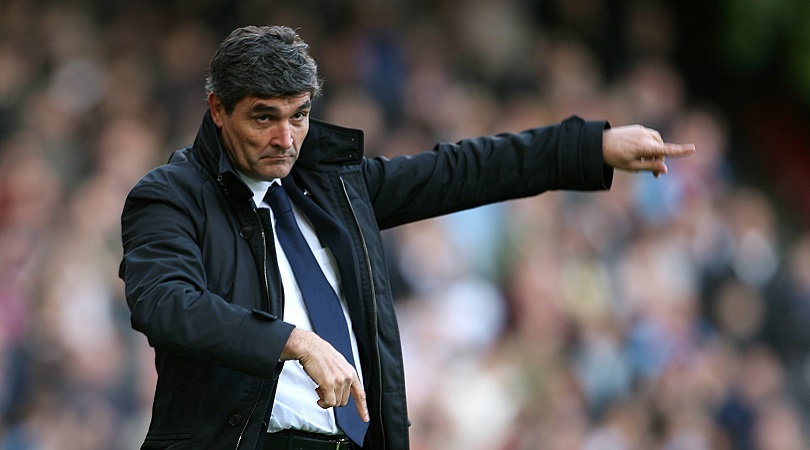
19. Juande Ramos (Tottenham)
27 October, 2007 to 25 October, 2008
Tottenham fans might want to be Real Madrid but Daniel Levy would settle for Sevilla: a club who trade wisely, make a profit and consistently finish high up the league and win in Europe. So it was no real shock that Spurs hired Ramos, who had led his side to two successive Europa League triumphs.
The Spaniard struck silver for Spurs, too, with the League Cup triumph over Chelsea securing UEFA Cup qualification. Perhaps Levy should have targeted Sevilla’s legendary sporting director Monchi, but instead Ramos had to work with Damien Comolli, whose botched attempt to replace star striker Dimitar Berbatov eventually cost the Spaniard his job.
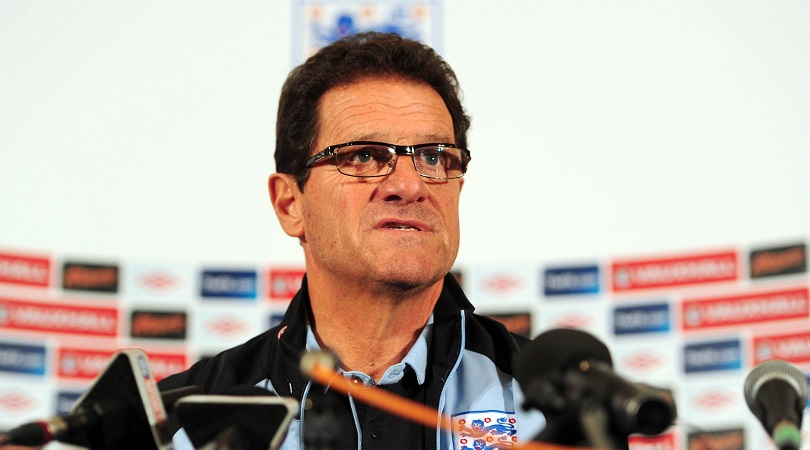
20. Fabio Capello (England)
14 December, 2007 to 8 February, 2012
Capello had won seven league titles in Spain and Italy in the 16 years before his appointment as England boss in 2007. The Italian’s team sailed through qualifying for the 2010 World Cup, winning their first eight fixtures and averaging over three goals per game.
However, the campaign in South Africa was disastrous: a stolid England stumbled through an underwhelming group and were outclassed 4-1 by Germany. Players complained of a “prison camp” atmosphere, but England had committed to their manager until Euro 2012, for which the Three Lions qualified with ease. Unhappy at the FA’s decision to strip John Terry of the captaincy, Capello resigned before the tournament started.

Greg Lea is a freelance football journalist who's filled in wherever FourFourTwo needs him since 2014. He became a Crystal Palace fan after watching a 1-0 loss to Port Vale in 1998, and once got on the scoresheet in a primary school game against Wilfried Zaha's Whitehorse Manor (an own goal in an 8-0 defeat).
